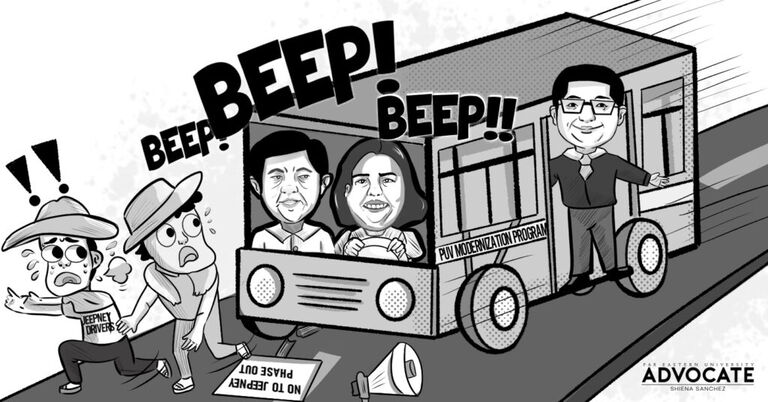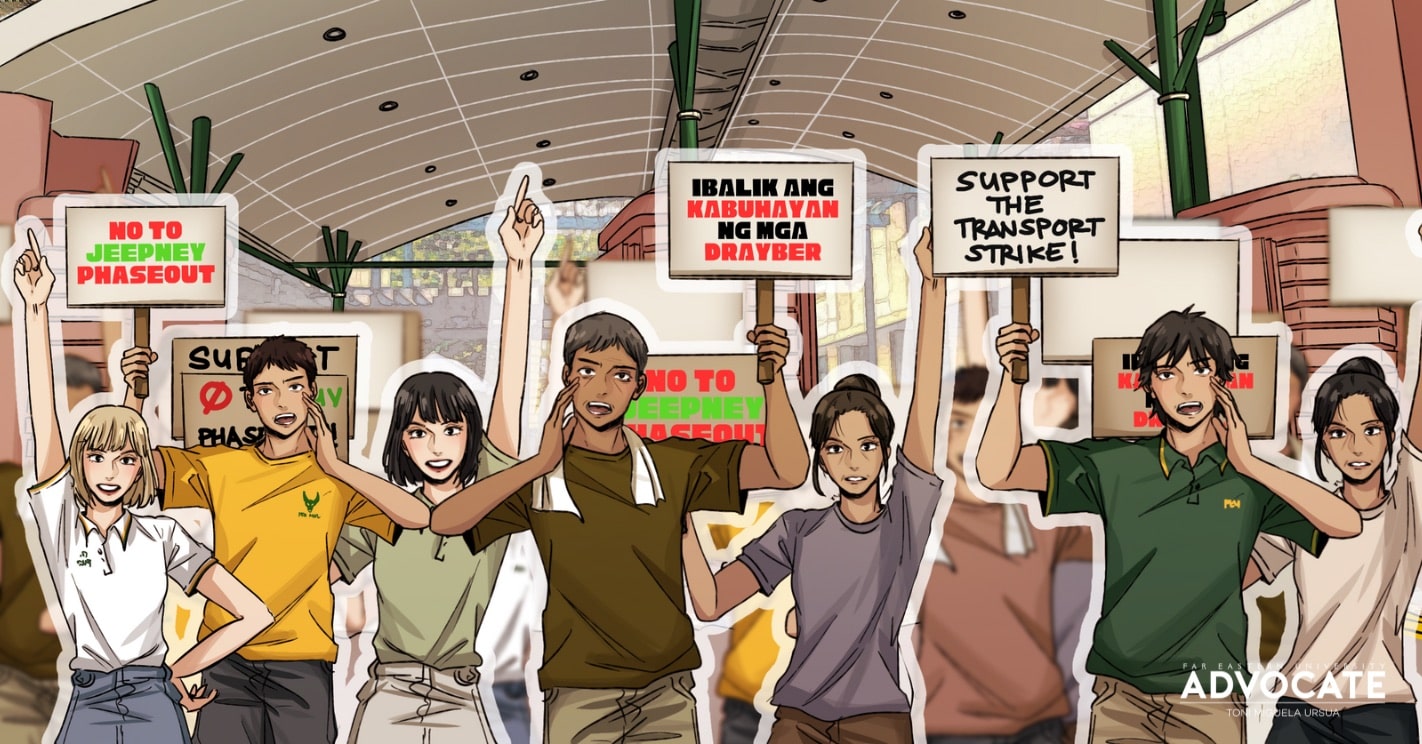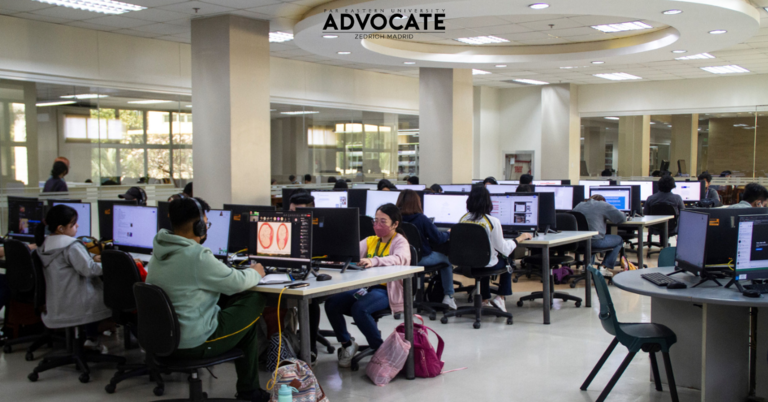
Pagpiglas ni Clarita sa Rehas ng Nakalipas
- April 11, 2023 07:07
FEU Advocate
March 12, 2023 11:07

FEU Advocate
The recent strike and the subsequent dialogue that it has prompted between the transport sector and the government are testaments to the importance of a firm stance in the face of oppressive regulations, baseless red-tagging, and anti-poor policies.
Transport groups Manibela and Piston announced that their planned week-long strike would be cut short following the seemingly successful meeting between transport group leaders and Presidential Communications Office (PCO) Secretary Cheloy Garafil in Malacañang last March 7.
In a Facebook post, Manibela representative Mar Valbuena assured his constituents that no jeepney phaseout would occur as President Ferdinand Marcos Jr. expressed his willingness to review and revise the implementation of the existing PUV Modernization Program (PUVMP).
All of these transpired only a day after the PCO and the Land Transportation Franchising and Regulatory Board (LTFRB) declared that the strike had failed to interrupt the regular public transport operations, except in five percent of the total routes nationwide.
It seems that despite the government’s desperate attempts to dishearten the protesters by downplaying the impact of the movement, the strike has still managed to fulfill its immediate objective: to reiterate the transport sector’s call for a just and equitable transition to modernization.
The fact that it has sparked various conversations and gained favor not only within the sector but even among the commuting public is proof that the transport groups’ message was clearly sent across the concerned agencies.
In fact, the Department of Transportation (DOTr) and LTFRB were ordered to, once again, revisit the Department Order No. 2017-011 or the Omnibus Franchising Guidelines in contemplation of the drivers and operators’ welfare. This is on top of the deadline for consolidation that they were forced to extend until December 31, 2023, after the transport groups first announced the strike.
Piston leader Mody Floranda, however, refuses to be complacent as he vows to continuously monitor whether the administration would remain true to Marcos’ word that no traditional jeepneys would be phased out regardless of age, for as long as they are compliant with the standards.
Floranda’s pragmatic approach in tackling developments in the issue is a reminder that promises and execution are two separate undertakings that do not always necessarily tie up – as has frequently been the case in the country.
Unless the public sees tangible acts of empathy from the government towards those who will be compromised by the PUVMP, the promises made to transport groups during the height of the strike would remain hollow and stale.
It is for this reason that the public should be one with the protesting sector in monitoring the administration’s commitment to its word, especially amidst the numerous detractors that have been plaguing the movement since its announcement.
Among said detractors is Vice President and Education Secretary Sara Duterte who, as usual, resorted to red-tagging to antagonize and demerit the protest.
“Pointless” and “communist-inspired” were the words used by Duterte to describe the planned week-long strike as she lambasted the Alliance of Concerned Teachers who had previously expressed their support for the transport sector. She also mentioned that the strike was a “painful interference” to the government’s efforts in resolving the current issues surrounding the education system.
Duterte’s willingness to use the education sector as an excuse to dismiss the plight of the struggling transport sector is either an indication of her inability to address multiple issues at once, or her reluctance to understand the state of small-time drivers and operators.
In any case, her statements do not really add anything to the conversation and only pose more harm than constructive inputs.
The same can be said of DOTr Undersecretary for Legal Affairs Reinier Yebra who warned about the penalties that protestors might face should they participate in the strike.
As if the effects of the pandemic and the looming PUVMP were not burdensome enough, Yebra reiterated that the government holds the right to revoke the franchise of any holder who fails to serve the commuting public by reason of protest, citing that this is tantamount to violation of franchise conditions.
Transport groups were able to power through the hostile responses from the likes of Duterte and Yebra – a reflection of their dedication to fight for their right to livelihood and the welfare of the commuting public.
Now that they have made their point and have successfully received support from the Malacañang, the masses should remain on the lookout for the fulfillment of the government’s promises to ensure that the kings of the road would not lose their rightful claim to the throne.









